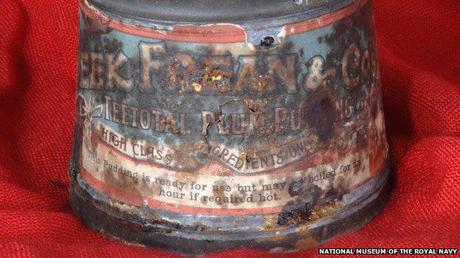 Despite tantalising us with its instructions - 'This pudding is ready for use but may be boiled for an hour if required hot' - the dessert is long past its use-by date and its tin is corroded. It won't be part of anyone's festive meal, then, but will go on display at Portsmouth's Royal Navy Museum.
Despite tantalising us with its instructions - 'This pudding is ready for use but may be boiled for an hour if required hot' - the dessert is long past its use-by date and its tin is corroded. It won't be part of anyone's festive meal, then, but will go on display at Portsmouth's Royal Navy Museum.The Christmas puddings were not the only way in which Agnes Weston brightened up sailors' lives. She founded Sailors' Rest temperance hostels where sailors could get food, drink, baths, (non-alcoholic) entertainment and a bed for the night - from 1892, they were Royal Sailors' Rests. She also published a monthly letter which was sent to sailors at sea, developing into the journal Ashore and Afloat, and campaigned for widows' pensions. In recognition of her philanthropic work, she was buried with full naval honours in 1918. Although the services it provides has changed, her organisation (now RSR) continues its work today.

